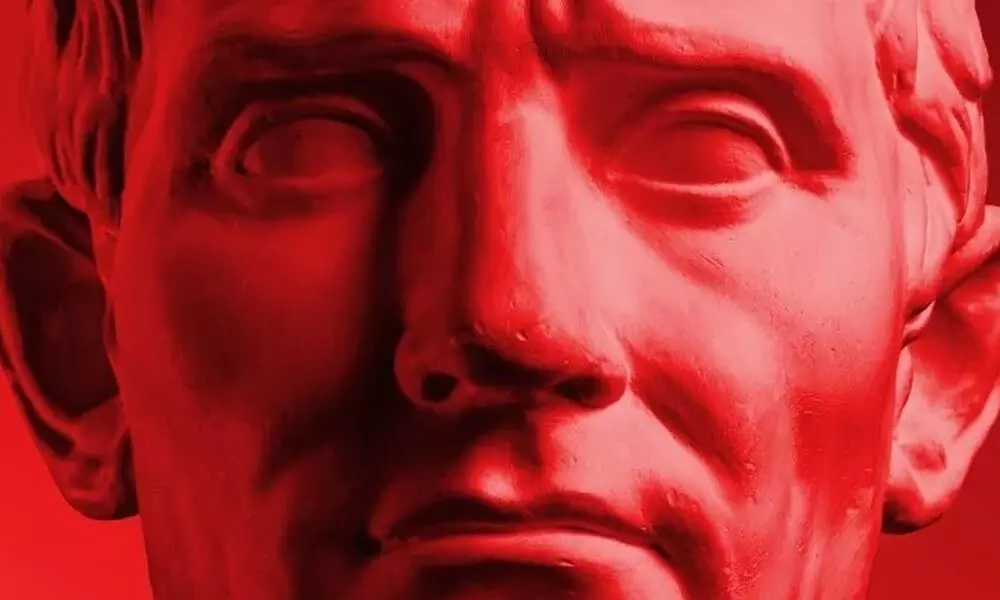Live
- Three persons admitted to hospital for diarrhea treatment
- First Star Outside Milky Way Captured: WOH G64 is 2,000 Times Larger Than the Sun
- Sikkim govt to constitute state Niti Ayog: CM Tamang
- CBI books Rajasthan narcotics inspector for Rs 3 lakh bribe
- Rajasthan bypolls: A tough contest between BJP and Congress
- Albania joins SEPA, paving way for EU integration
- Japanese government approves 250-billion USD economic package to ease price pain
- Six pharma companies to set up their units in Telangana
- The Unstable Events of a 17-Wicket Day in Perth: India vs Australia
- Dutch FM's Israel trip cancelled after Netanyahu's arrest warrant
Just In
Reasons For Roman Emperors Pass Away Due To Natural Causes

Hans News Service | 18 Oct 2021 7:23 PM IST

x
Reasons For Roman Emperors Pass Away Due To Natural Causes
Highlights
- Scientists have discovered a new mathematical pattern in their untimely and frequently violent deaths
- The Pareto principle, sometimes known as the 80/20 rule, is usually concerned with economic inputs and outputs
Scientists have discovered a new mathematical pattern in their untimely and frequently violent deaths, a power law that describes the fate of so many who died with an entire empire at their feet.
According to data scientist Francisco Rodrigues of the University of So Paulo in Brazil, power-law distributions of probability are found in many different phenomena linked with complex systems, noting that the reigns of the Caesars represent one such scenario. The Pareto principle, according to Rodrigues, is a power law distribution that generally characterises the longevity of Roman emperors.
The Pareto principle, sometimes known as the 80/20 rule, is usually concerned with economic inputs and outputs, but it may be reduced in terms of probability distribution to suggest that common occurrences have around 80% probability, while rare events have approximately 20%.
In this situation, when it comes to the deaths of Roman emperors, violent deaths are far more common, with natural causes being far less common especially in the early days of the Western Roman Empire.
According to the researchers, emperors had a one-in-four probability of living long enough to die of natural causes between the first emperor Augustus and Theodosius over that time span.
However, when looking at the entire Roman Empire – from Augustus to the end of the Byzantine Empire (also known as the Eastern Roman Empire, which lasted until 1453 CE), things didn't get any better.
Even when all 175 Roman emperors' reigns were taken into account throughout this lengthier period, each king only had a 30% probability of living to a ripe old age. The researchers discovered that some years were more dangerous than others under these disastrous reigns.
Rodrigues added that when they looked at the time to death for each monarch, we discovered that the danger of death was very high when the emperor assumed the throne. It could be related to the job's difficulties and obligations, as well as the new emperor's lack of political experience.
If emperors made it through their probation period without being assassinated by their coworkers, their prospects of advancing to the top job quickly enhanced. The researchers discovered that they did, or at least tended to, up until a certain point.
After the emperors had governed for around 13 years, their chance of death increased again, possibly reflecting the impatience of their ambitious, sometimes homicidal supporters – if not outright opponents.
It's possible that after the 13-year cycle, the emperor's competitors realised they were unlikely to succeed through natural means, Rodrigues speculates.
Perhaps his old foes have rejoined, or new adversaries have emerged.
According to the researchers, the lives of Roman emperors were mathematically similar to earthquakes, comparing the likelihood of short imperial reigns as opposed to long ones to the likelihood of tiny earthquakes which are much more common than big earthquakes.
Emperors and earthquakes both appear to be capable of unleashing vast, landscape-altering waves of violence. However, that may be beside the point.
More On

Next Story
More Stories
ADVERTISEMENT
© 2024 Hyderabad Media House Limited/The Hans India. All rights reserved. Powered by hocalwire.com






